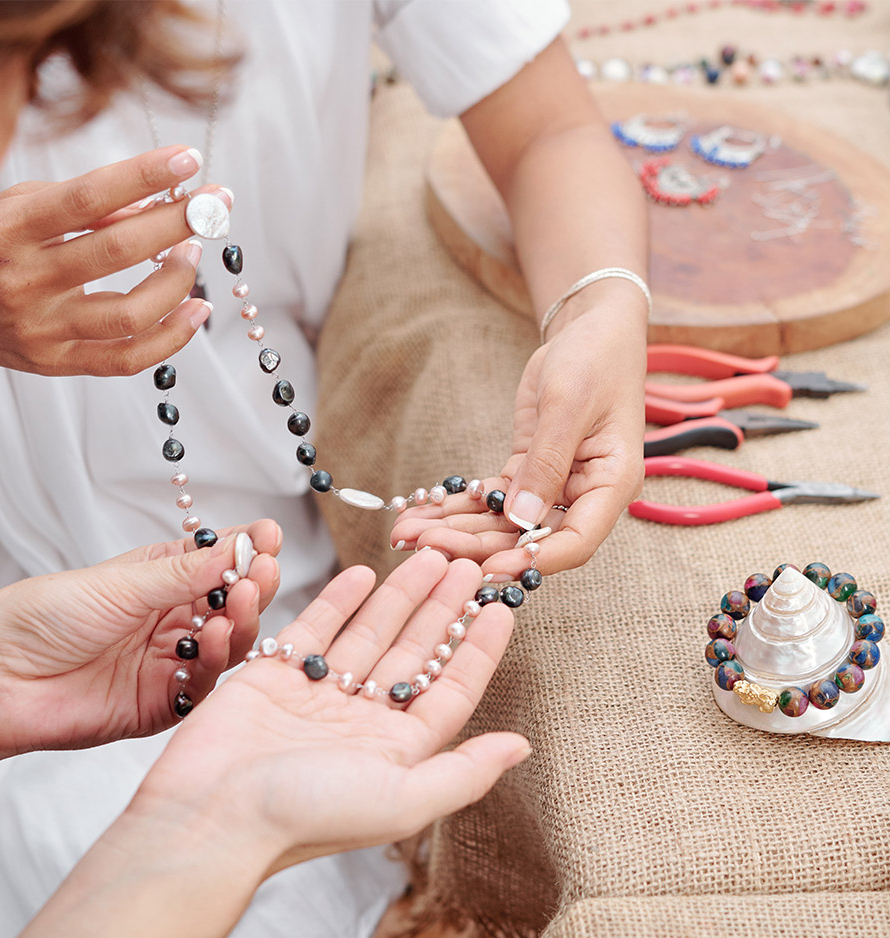Opportunities for women and nonbinary creators in the jewelry industry have never been more abundant than they are now. We highlight a range of mentorship, scholarship, and training programs designed to help women help themselves.
As a newbie to the jewelry industry, Jessica Hargwood found herself scrolling through the GIA website, her heart sinking as she read about work experience she didn’t yet have, but very much needed, to land a job. Then the single mom saw something that caught her attention: The Clear Cut Scholarship Fund, which presented an opportunity to receive a cost-free GIA education and a six-month paid internship with the e-commerce jewelry brand.
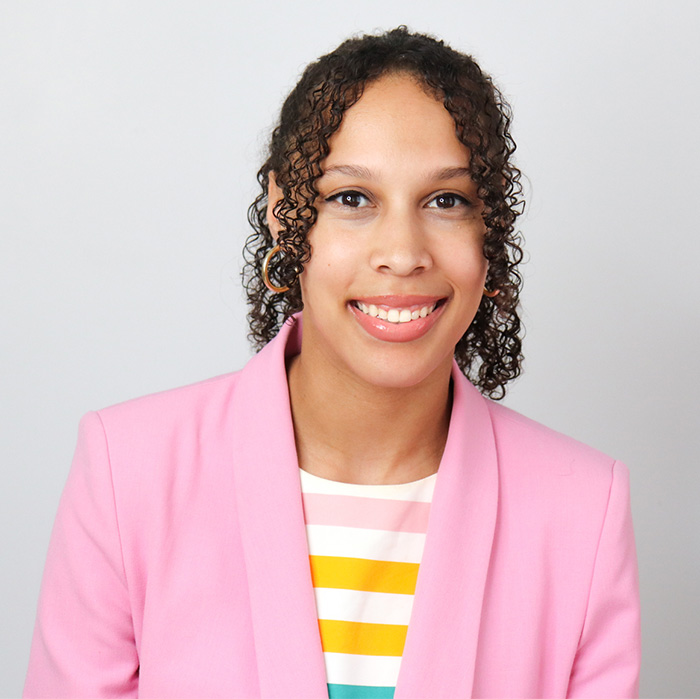
Hargwood applied for and received the scholarship, described on the company’s website as “an opportunity for a BIPOC woman who has demonstrated a desire to pursue a career in the jewelry industry.” She subsequently interned under The Clear Cut’s founder and CEO, Olivia Landau, and recently landed a full-time position with the company. Hargwood says the timely scholarship gave her a much-needed bridge between her first jewelry job working in production at a wholesale fashion jewelry company and creating her own path toward becoming a fine jeweler.
“This scholarship not only gave me the educational foundation to achieve success, but also hands-on internship experience that has proven invaluable throughout my studies,” Hargwood tells JCK. “With Olivia’s mentorship, I’ve been able to carve out a role that suits both my new and old skills. I’m doing things I’ve only dreamt of, like conceptualizing and developing new collections.”
As with The Clear Cut, a growing number of women jewelers, jewelry designers, and metalsmiths are devising ways to help other women and nonbinary creators find a role within the industry through mentorships, scholarships, marketing opportunities, and one-of-a-kind educational programs. As Hargwood’s experience demonstrates, the results can be life-changing—and, eventually, industry-changing as well.
The women who have established these programs say they are funding them as a way to give back and also to develop a sense of equality and representation within the jewelry industry. Through partnerships with organizations like the Women’s Jewelry Association (WJA) and Black in Jewelry Coalition, they are bringing diverse and important voices into jewelry at a key time, according to industry experts.
“As women, we are the major consumers of jewelry and fashion,” says Mariana Chambers, founder of Cut + Clarity, an online retailer based in New York City. “But, unfortunately, as women, we’re not at the top of the food chain.”
Below we highlight seven opportunities for women and nonbinary people who aspire to ascend the fine jewelry ladder.
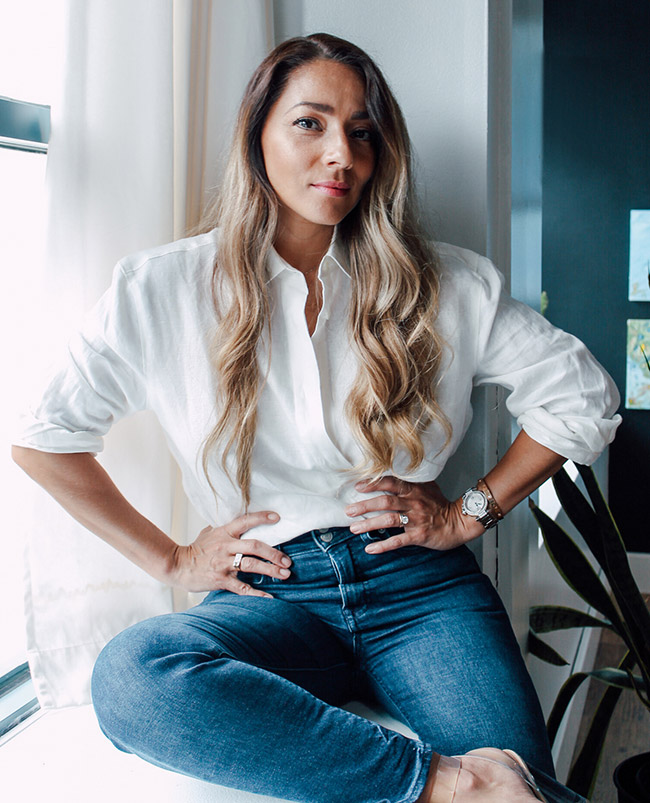
Cut + Clarity: Entrepreneurship
Earlier this year, Cut + Clarity opened an atelier in New York City’s Diamond District that offers an apprenticeship program to help women learn how to make jewelry and establish themselves as business owners within the jewelry industry. The point is to show women—and their daughters—that being part of the process also means owning what you make. The message comes through loud and clear on the atelier application on the brand’s website: “The Future of the NYC Diamond District is Female.”
“At the core, it’s a matter of representation,” Chambers says. “I knew right away when I started in jewelry, I needed to make sure that there were more people who looked like me. I had to fight my way through, and I wanted to make sure by the time my daughter was my age, the barriers wouldn’t be there for her as a woman.”
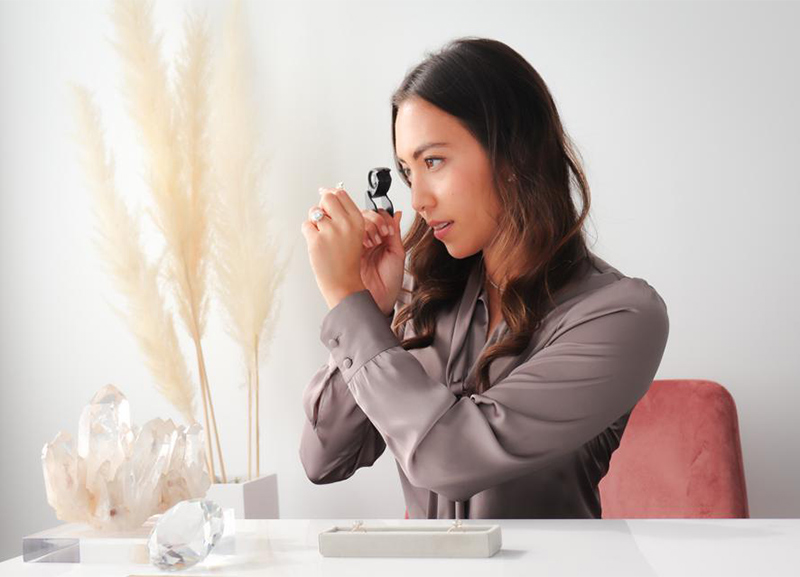
The Clear Cut: Scholarships
“When we started growing our company, we were looking for skilled gemologists, and we also wanted to create a diverse, equitable environment,” The Clear Cut’s Landau says. “When we found it challenging to find women of color who were graduate gemologists, we asked: ‘What can we do about this?’”
Landau credits her own GIA education as essential to her personal and professional success. So in 2021, her company established its scholarship fund, which sponsors recipients’ tuition for The Graduate Diamonds diploma program at GIA. The Clear Cut also runs a podcast, Cozying Up With The Clear Cut, that highlights women founders and entrepreneurs, telling their stories to inspire and enlighten creators.
As a female-founded company, The Clear Cut reflects Landau’s belief that brands like hers have a responsibility to lead within the jewelry industry. “We always set out to be a disruptor in the industry,” she adds. “It’s easy to shrug your shoulders and say there aren’t enough women of color to hire. If you want to see a change in your business and the industry, you need to make that change.”
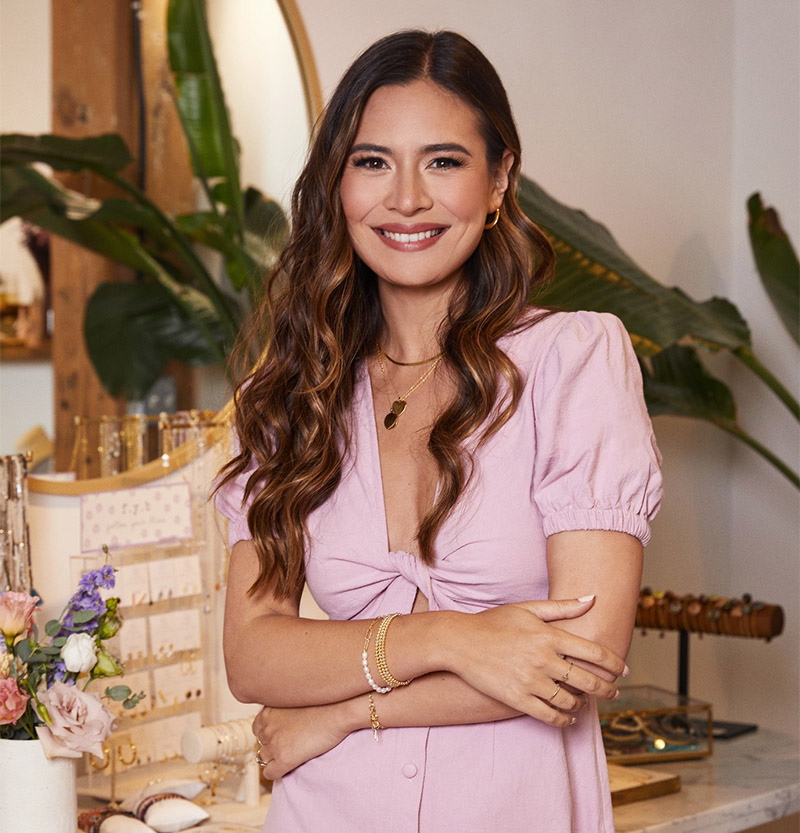
fyb jewelry: Mentorship
Alyssa Kuchta, founder-designer of the Brooklyn, N.Y.-based fyb jewelry, introduced the fyb mentorship program to connect emerging creatives with seasoned professionals for guidance and support. Kuchta says her inspiration was the strong mentorship she received in 2011 when, as a senior at the University of Delaware, she founded a fashion brand through the university’s Horn Program for Young Entrepreneurs. She wanted to return the favor.
“Mentorship is so important and crucial, especially for young women,” Kuchta says. “There’s immense pressure to have things figured out and know what path you want to take. Mentorship is a huge part of opening someone’s eyes to what’s possible and sharing advice and resources to help guide them. My business was really built on creating a supportive, loving, empowering network for young women and being a ‘big sister’ voice.”
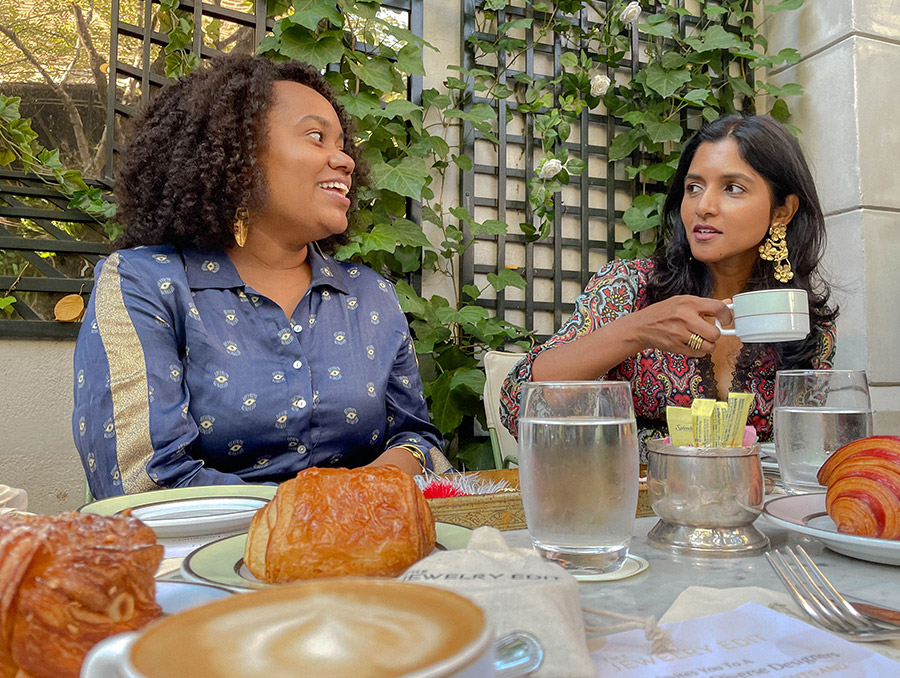
The Jewelry Edit: Marketing
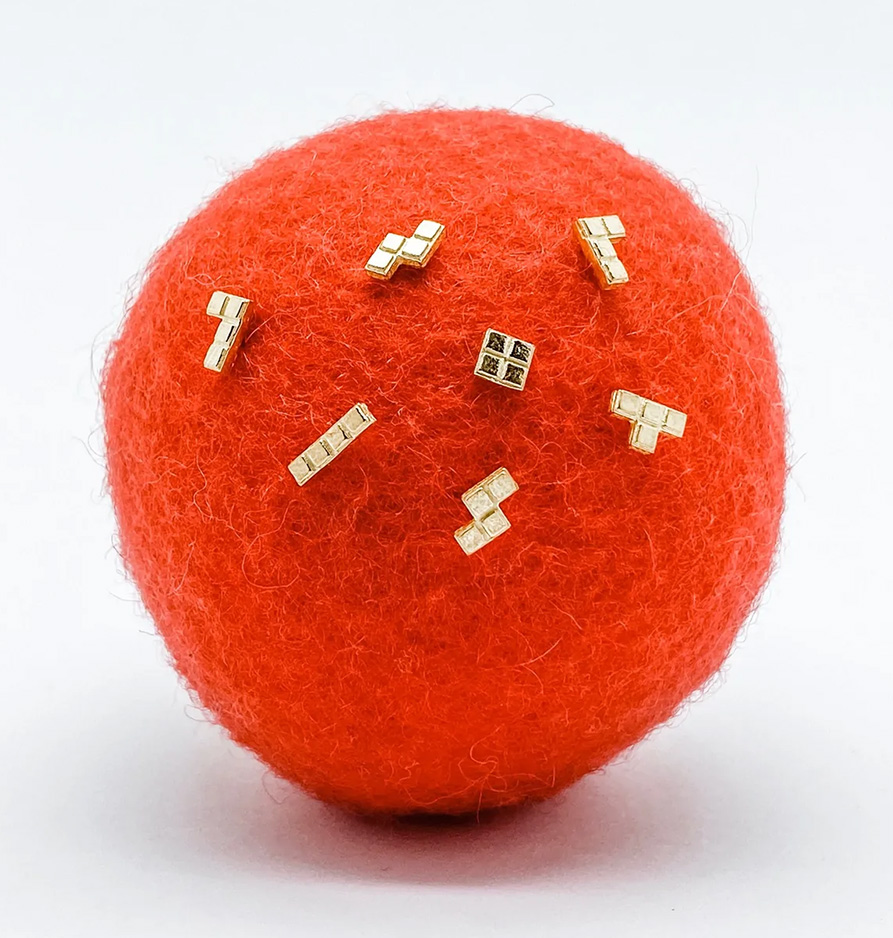
Rosena Sammi, founder of e-tailer The Jewelry Edit echoes her fellow female founders when she says that mentorship is part of her brand’s DNA, whether through education, helping with sourcing materials, or even serving as a guide on how to balance work and family life.
For example, Sammi, a former lawyer, takes women jewelry designers with her when she speaks to school-age children about jewelry-industry roles, from bench jeweler to owner. She also invites industry law professionals, brand partnership experts, and jewelry manufacturers to talk to up-and-coming female jewelry designers, imparting knowledge and advice that otherwise might take years to acquire.
Sammi’s inclusive ethos reflects the fact that she considers The Jewelry Edit a community-building effort. “This isn’t just a platform for us; it’s personal,” she says. “I’ve had my own jewelry line, so I get it. That’s why we highlight designers and tell their stories. It gives people clarity and an understanding of who’s making their pieces and the journey they took to get here.”
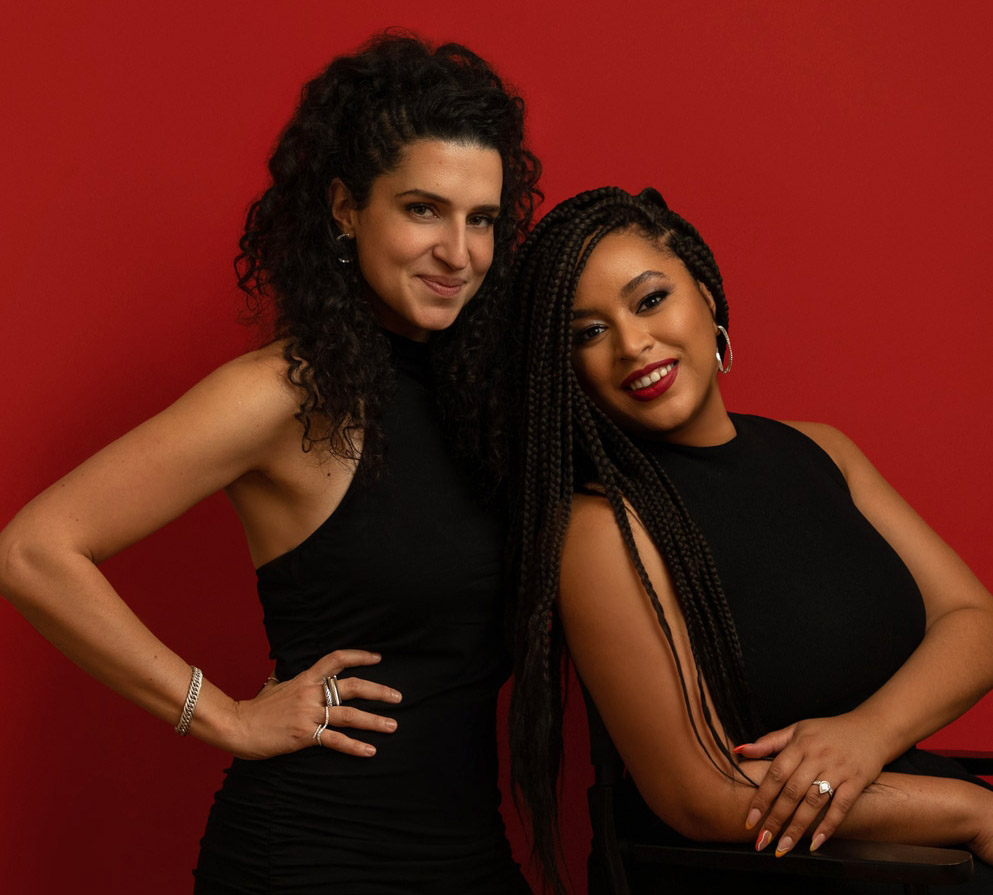
Women in Jewelry Who Rock: Promotion
Seeing women across the industry who work in various roles—including IT, design, and business ownership—inspired Elyssa Jenkins-Pérez and photographer Alice Prenat to create the Instagram platform Women in Jewelry Who Rock. Their collaboration highlights emerging and established women within jewelry through a portrait and interview series that is now being turned into a book.
“We wanted to both give back and pay it forward to women in the industry that I’ve met, who I look up to, and who are making a change,” Jenkins-Pérez says. “We also wanted to give them a chance to celebrate themselves. We can get so caught up in work that we don’t get a chance to stop and reflect on how much we’ve done.”
Women in Jewelry Who Rock received a grant from WJA, which helps boost women’s roles within the industry through programs such as The Jewelry Loupe mentorship program.
 Women’s Jewelry Association: Education
Women’s Jewelry Association: Education
As the industry’s premier networking organization for women, WJA also supports programs through its Women’s Jewelry Association Foundation. One such foundation initiative is the Radiant Minds Technology Scholarship, which was introduced in June with the help of its funding partners, Jewelers Mutual and the Black in Jewelry Coalition. As one of WJA’s largest scholarships, Radiant Minds provides women of color educational funding toward tech-related jobs; recipients receive up to $17,500 to pay for training for certification focused on software engineering.
“It’s about leveling the playing field,” says WJA executive director Jennifer Markas. “It’s about bringing people in—not only to get education, but to educate others.”
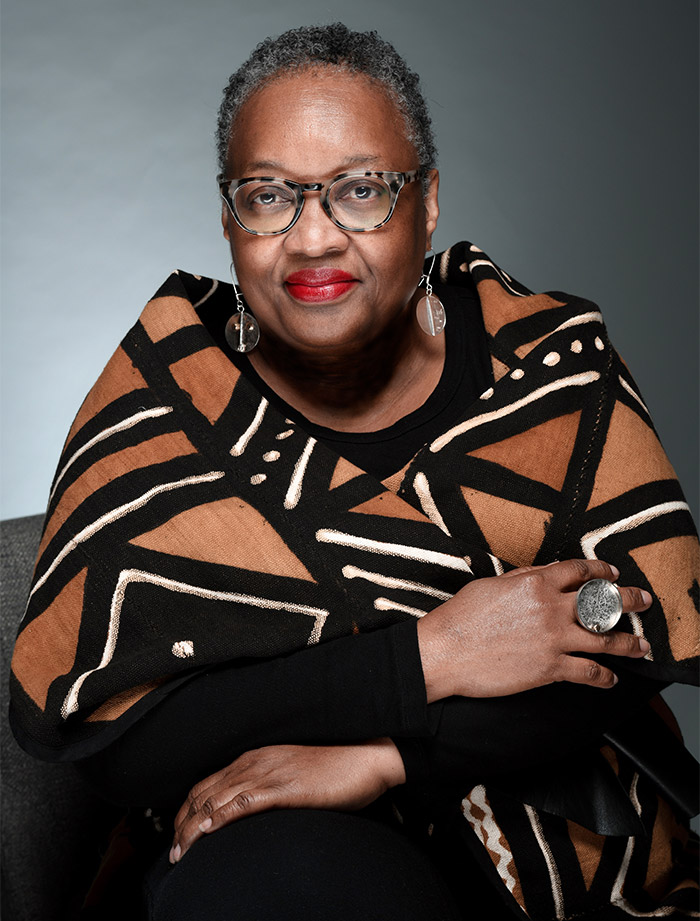
We Wield the Hammer: Representation
Metalsmith Karen Smith founded We Wield The Hammer in 2019 to train women of African descent in the fundamentals of metalsmithing.
Smith aimed the Oakland, Calif.-based program at women ages 14 to 22 as a result of her personal journey: In 2018, she traveled to Senegal to advance her own education and noticed a young girl watching her at work. Upon learning women were not represented within the metalsmithing industry there or in other parts of the world (according to a Senegalese saying, “Women don’t wield the hammer”), Smith says she decided it was time women of African descent had an opportunity to create their own jewelry.
“Around the world, women are left out of this artistic vocation,” Smith says. “There’s not a lot of room for equity, and I want to see that change. I saw young women and girls being transfixed by this work, and I knew that if they decided they wanted to learn it for themselves, someone needed to be able to teach them.”
Top: Getty Images
